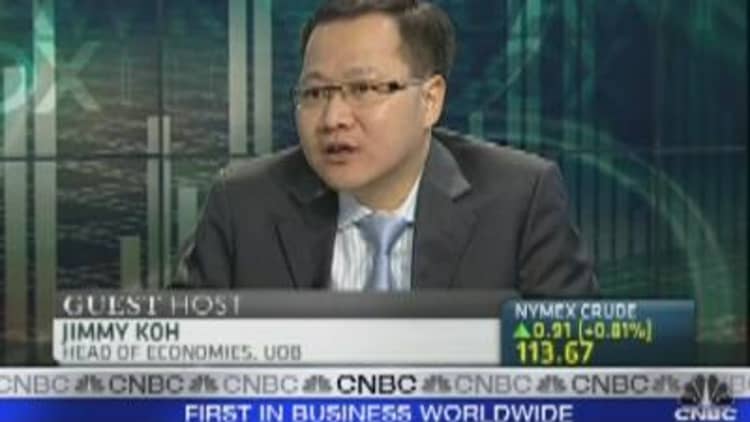Fed chief Ben Bernanke's pledge to keep interest rates low for an extended period may have cheered the stock markets but one economist cautions it may be fueling a property bubble in Singapore.

Singapore property prices rose 17 percent last year after a 25 percent decline during the recession in 2009. Analysts are growing increasingly worried about property prices and the government has tried repeatedly to cool the sector.
"For now, the party is on, everybody is enjoying it, it's only when the party is over (that) you have a hangover tomorrow morning," Jimmy Koh, Executive Director & Head of Research at UOB told CNBC on Thursday.
Koh pointed to the relatively low debt-servicing ratio in Singapore as an indicator he is watching. The ratio currently stands at 20 to 30 percent of household income, compared to the 60 to 90 percent levels seen in 1996, when UOB's data series began. The low debt ratio was largely due to low interest rates, according to Koh. Mortgage rates in Singapore stand at less than 1.5 percent currently, far lower than the 6 to 8 percent rates in the late nineties.
"When (the) interest rate environment does change, that indicator will change and that will determine whether we are in a bubblish mode," Koh said, highlighting that for every 1 percentage point rise in interest rates, debt servicing would go up by 3.5 percentage points.
While he does not see mortgage rates in Singapore heading back to the 6 percentage range seen in 1996, Koh thinks people will start getting a lot more cautious when interest rates hit 2 or 3 percent.
Markets are expecting the U.S. Federal Reserve to begin raising interest rates in the early part of 2012. That would have a direct impact on interest rates in Singapore, since the benchmark Singapore interbank overnight rate (SIBOR) tracks rates in the U.S.
Another factor UOB's Koh said he was watching was the lagging supply of property projects. By 2013, a substantial supply would come onstream. That, coupled with potentially higher borrowing costs in 2012, could prove to be a double whammy for the property market in the city-state.

